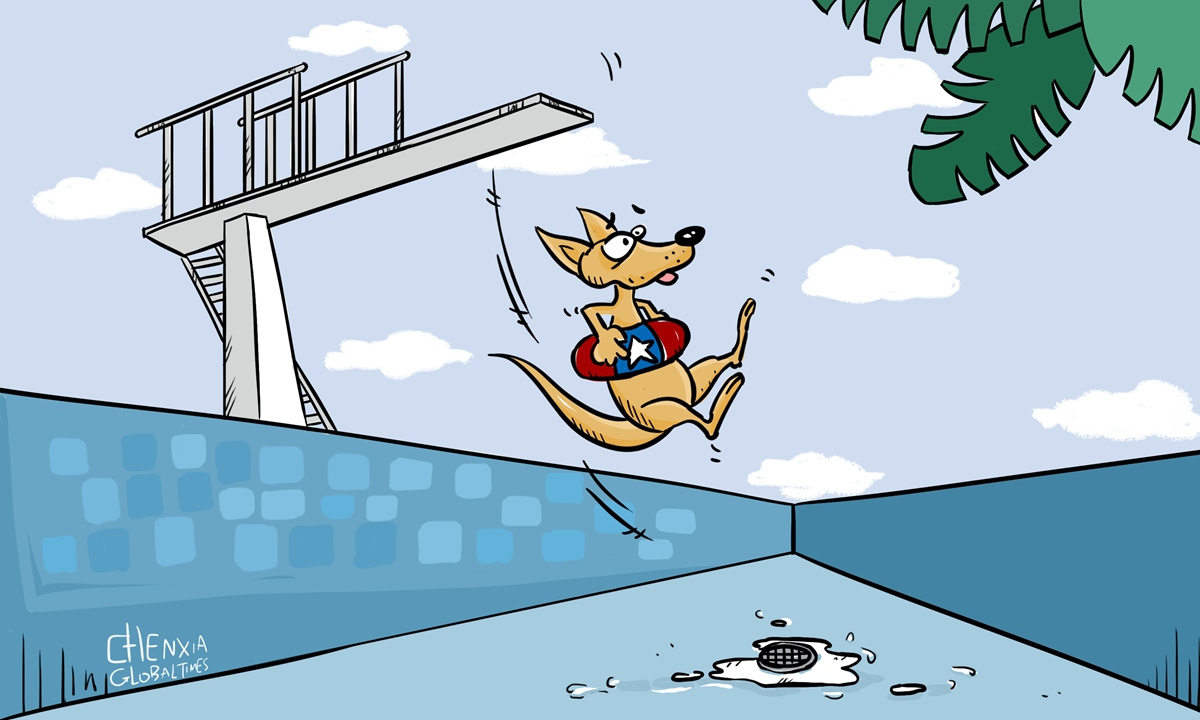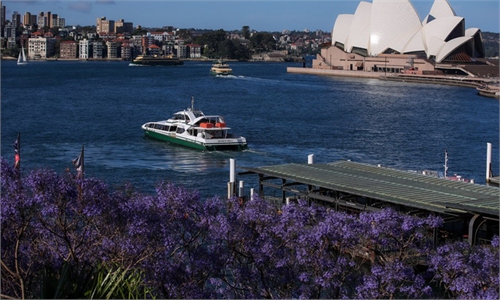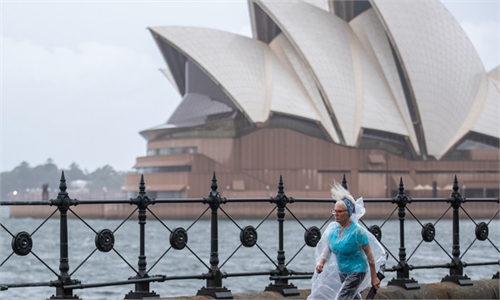
Illustration: Chen Xia/GT
Even after single-handedly driving China-Australia ties to a near-frozen state, the Morrison government appears to be dead set on further escalating regional confrontation by substantially increasing investment in defense and national security - apparently to maintain its role of an attack dog for the US' so-called Indo-Pacific strategy aiming to contain China.The Australian federal government plans to spend 270 billion Australian dollars ($212 billion) over the next decade on upgrading defense capabilities to "promote an open and peaceful Indo-Pacific," according to media reports, citing a newly released economic plan by Australia's Treasury Department.
The hefty defense and security investment will include spending on upgrading infrastructure facilities aimed at assisting US military as well as other collaborative weaponry projects with the US, media reports said.
The spending plan came as some Australian politicians and media outlets have been pushing Australia to join forces with the US if a military conflict breaks out in the Taiwan Straits. In such context, observers generally see the move as a signal from Canberra that it will continue and even escalate its confrontational approach toward China.
While it is not all that shocking to see Canberra echoing the US' so-called "Indo-Pacific strategy" to contain China, it is still inconceivable that Australian politicians would be willing to run huge deficits to curry favor with the US. Ultimately, the defense spending could mean more carnage for the Australian economy.
According to the Treasury Department's budget plan for the fiscal year starting on July 1, none of its other spending plans could be comparable to the defense spending with the total expenses for the next fiscal year set at A$589 billion. For instance, the government proposed a A$17.7 billion spending on elderly care over five years, falling way short of even one-tenth of the defense budget.
Moreover, with such aggressive military spending plan, it is also questionable whether the country's budget deficit will decline in the coming years, as the Treasury claims, after hitting a record high of A$161 billion for the fiscal year ending on June 30.
But judging from the way Australian politicians talk and act, they are not so concerned about trade and economic issues that could affect the jobs and livelihoods of millions of Australians. If they were, they would have stopped their unreasonable provocative political stunts that wreak havoc on bilateral relations.
Australia's trade ties with China, its largest trading partner, will unlikely improve in the foreseeable future, which has and will continue to add pressure on the Australian economy. As Canberra continues on its confrontational approach, China's National Development and Reform Commission recently halted exchanges with Australia.
This week, some media outlets reported that liquefied natural gas (LNG) is regarded as the latest Australian export that could bear the brunt of deteriorating ties. A Bloomberg report stated on Monday that at least two Chinese small LNG importers were told not to purchase Australian LNG next year.
While the authenticity of the report remains unclear and China is unlikely to issue export ban without justified reasons, it doesn't mean China won't seek diversification of LNG supplies.
In fact, considering the tensions between the two sides and Canberra's reluctance to show even the slightest sign of willingness to repair bilateral ties, China's diversification push may cover more products.
It is Australia's relentless and unreasonable provocations that push China to seek such diversification. Certainly, China does not seek to initiate a "trade war," but a comprehensive counter plan is necessary to not just protect China's interests but also deter any potential provocation from Canberra.



